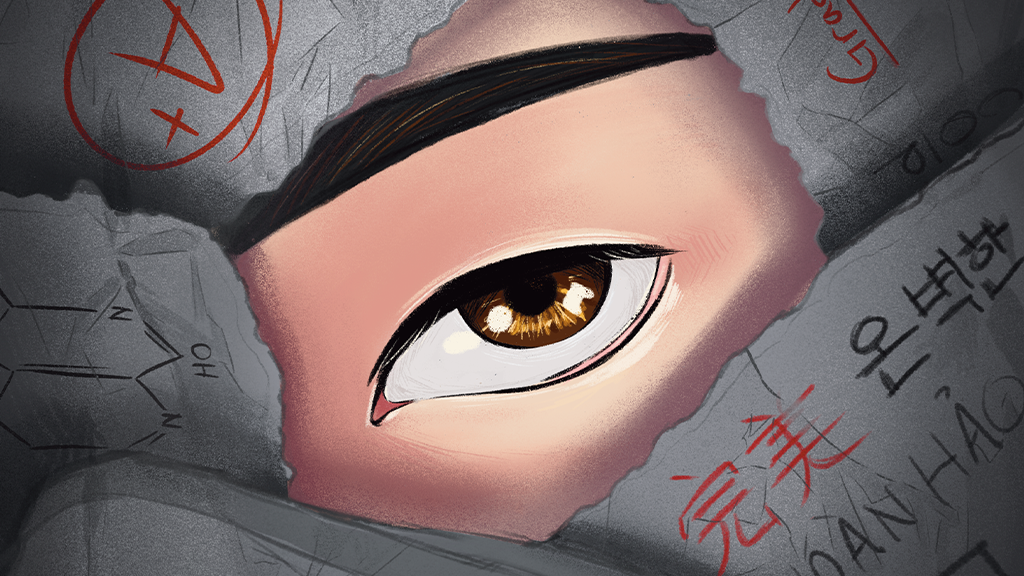Imagine feeling out of place in your own culture. Imagine feeling uncomfortable among people similar to you based solely on people’s perception. Unfortunately, this is the case for many people of color who have experienced the toxic impacts of ‘white passing.’
The concept of ‘white passing’ varies based on the community, but the essential concept remains the same: some people of color are considered ‘white’ by the rest of society based on their environment and outside perceptions.
According to PureWow Journalist, Chelsea Candelario, “White-passing is when someone perceives a BIPOC (Black, Indigenous, and Person of Color) as a white person. Some BIPOC people labeled as white passing are viewed as having more privilege than other individuals in their community.”
This labeling can take different forms, such as being questioned, accused or even alienated from a particular group. This issue is prevalent within many multicultural groups and communities, and it is important to raise awareness and speak up for those who may not feel comfortable doing so themselves.
History of White Passing
Instances of white passing date back centuries. For the African American community, the idea of passing as white can be traced back to the 18th century and pre-Civil War era. Within a country practically obsessed with the idea of segregation and racial distinctions, many people in the African American community used the idea of passing as white as an escape from their environment.
Allyson Hobbs, the author of “A Chosen Exile: A History of Racial Passing in American Life,” wrote about the history of white passing within the African American community. Hobbs explained about how passing as white in the antebellum South during the eighteenth century was a tactic many used to escape slavery. While this opened up opportunities, many people, as a result, felt isolated and unwanted within the African American community.
“After emancipation, many African Americans came to regard passing as a form of betrayal … passing became an opportunity to defy Jim Crow and strike out on one’s own,” Hobbs wrote.
What seemed to some as a means of escape and freedom was seen as an act of betrayal, resulting in people feeling lonely and isolated – contrary to the ‘rewards’ that the idea initially seemed to bring.
White Passing in the Modern Age
White passing is different for everyone who may experience it. For Jazmin Berduo Morales, a 2nd-year Computing Security major at RIT, white passing has not only made her uncomfortable in social situations, but within her Latin American roots as well.
“It’s when a person of color – doesn’t matter what range – is considered more of a white person,” Berduo Morales explained. “They may be more educated, mature, professional and do things outside of their culture; sometimes it’s appearance, sometimes it’s the way you act.”
“They may be more educated, mature, professional and do things outside of their culture; sometimes it’s appearance, sometimes it’s the way you act.”
Berduo Morales moved from an area with a large Latin American population to a place where the majority of the community were white and African American. In doing so, she became the “whitest Hispanic person” among her white and African American friends.
This conclusion stemmed from the fact that she was going out and doing things that were associated with being white and relates to the notion that there are certain stigmas associated with different groups. For example, many Asian families place a lot of emphasis on education, whereas other cultures — specifically Hispanic — run a bit differently.When someone doesn’t necessarily fit the ‘stigma’ of their culture, they are more often than not seen as ‘white.’
“People of color get seen as savages, not educated and hold lower class jobs,” Berduo Morales explained. “Many Hispanics don’t finish or go to college.”
While some groups may experience instances of white passing at a cultural level, the individual experience varies from person to person, depending on outside perceptions and pressures.
Unspoken Issue
Associating a person of color with being white is extremely detrimental to their own identities. By being caught in this ‘in between,’ leads to some people who do not feel comfortable in any group, even their own.
“Sometimes, even on campus, I don’t want to go to certain [Latin American] events because of that space,” Berduo Morales said. “It feels like I don’t fit into either spectrum.”
Not only does white passing plaster a false identity on the people who experience it, it sticks people in the middle of a cultural divide and can have an impact on their personal identity.
While this issue has been getting more attention in the film world, such as with the 1959 film “Imitation of Life,” or most recently the 2021 Netflix film “Passing,” it is still a problem that is not talked about enough.
“It’s everyone else’s perception … their perception is what makes us feel white washed.”
Many people feel uncomfortable in situations where they don’t feel as though they belong. According to Berduo Morales, the best thing to do is reach out to your friends who are POC and make sure they are comfortable.
Additionally, many people often feel judged if they feel out of place, or as if they do not belong. Ensuring they do not feel judged and cultivating a safe space for discussion will allow you to offer them support in these situations.
Since many people of color may not have the courage to speak up, it is important to recognize these intimidating situations and be there for those who are going through a lot more than they may be voicing.







